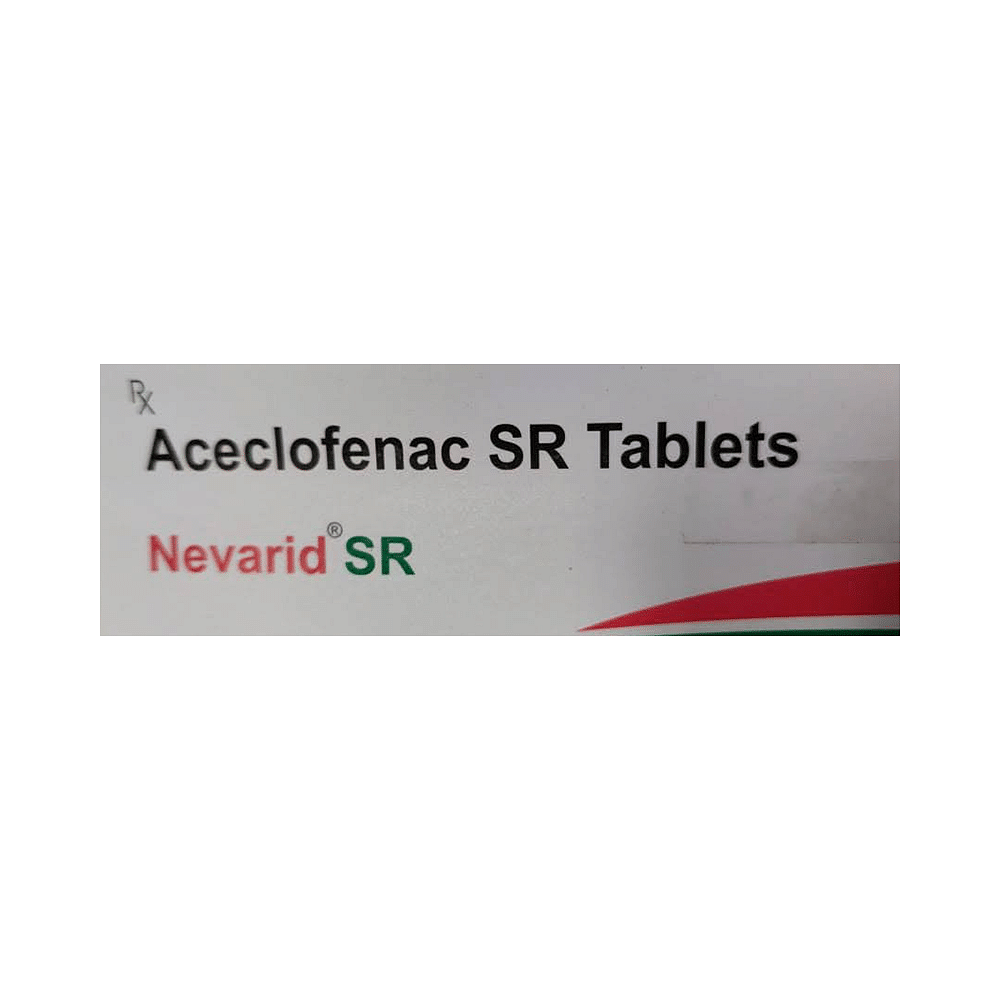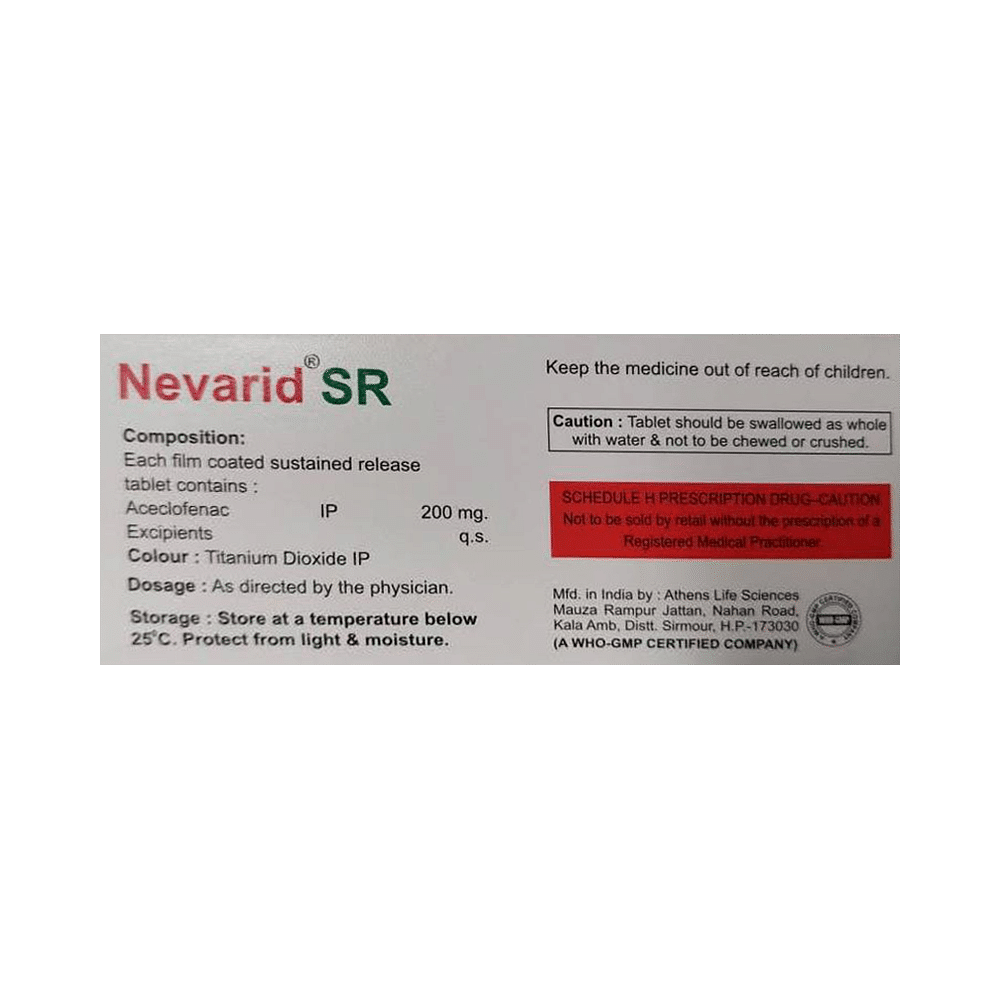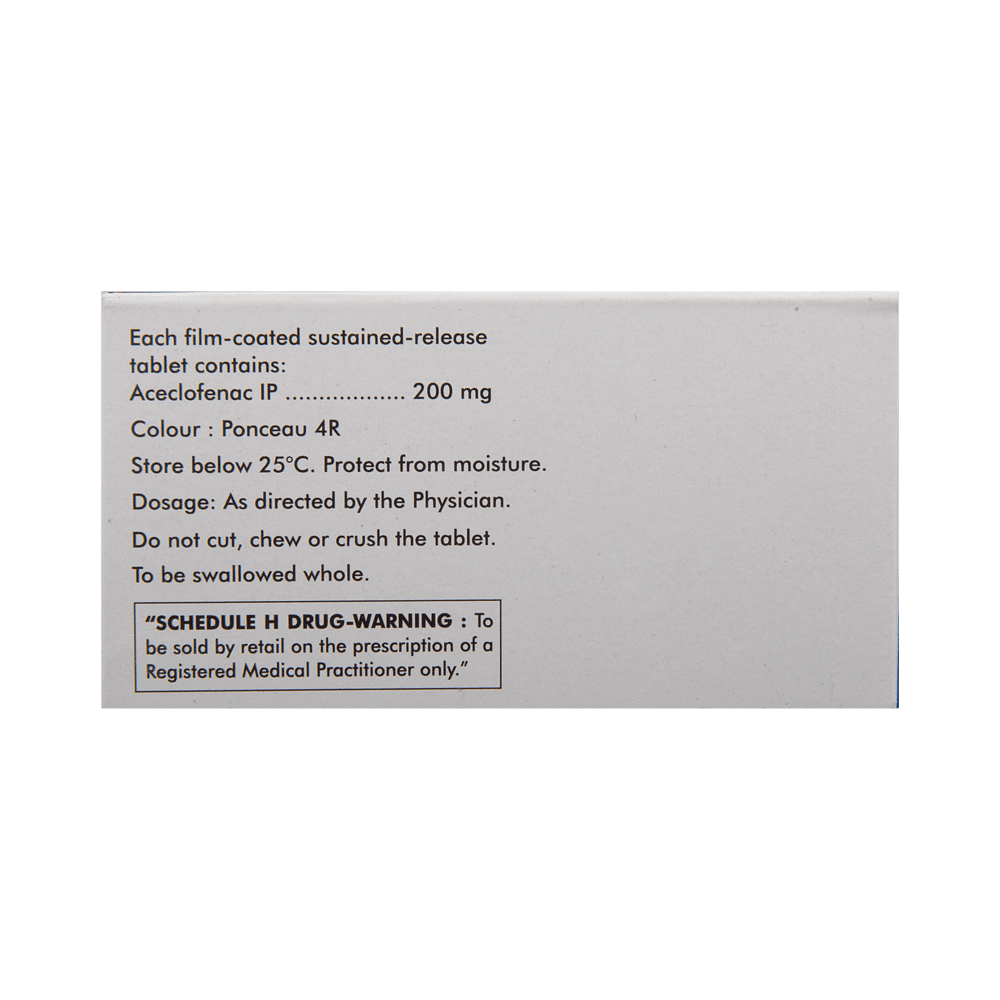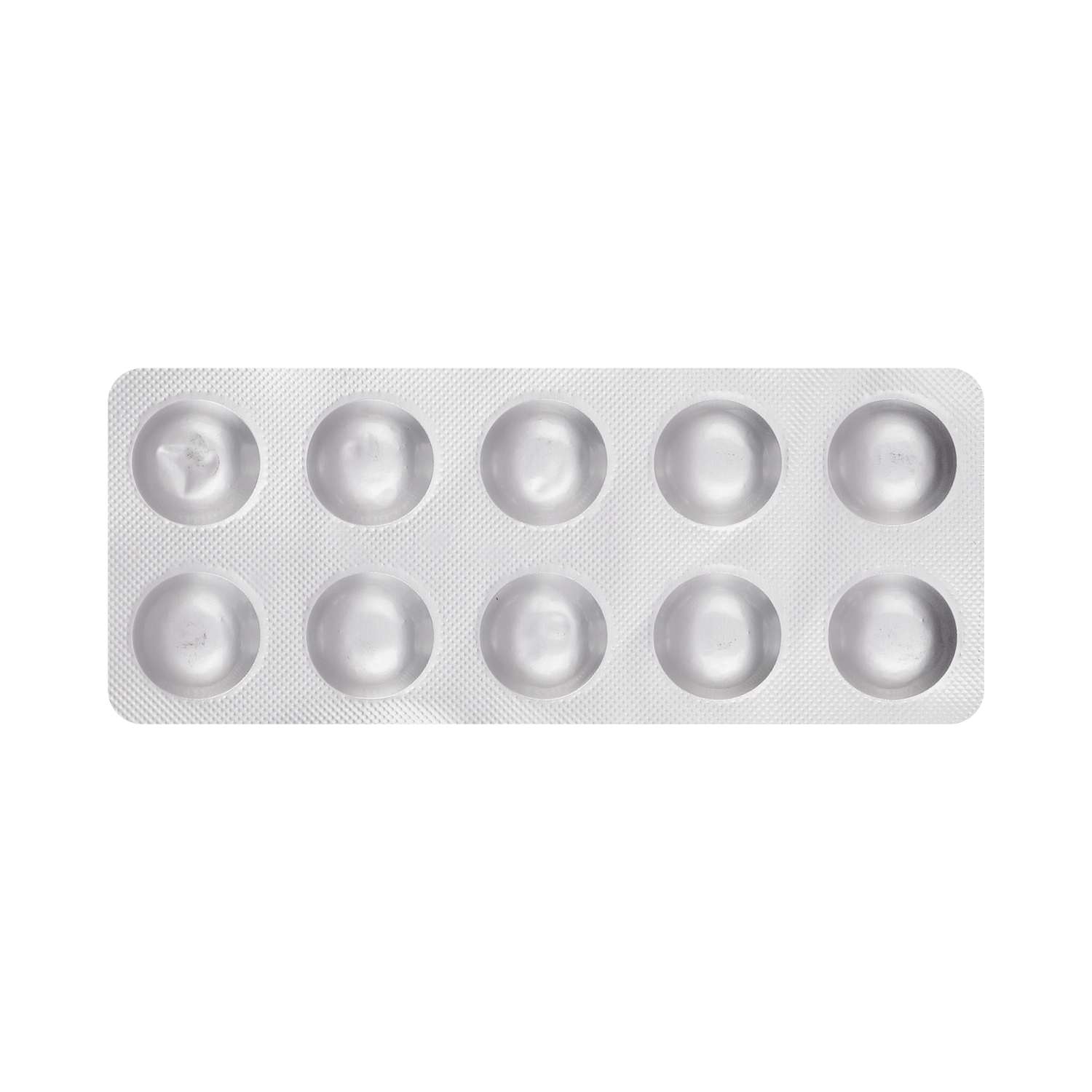

Nevarid SR Tablet
Manufacturer
Mecartus Health Care Pvt Ltd
Salt Composition
Aceclofenac (200mg)
Key Information
Short Description
Nevarid SR Tablet is a pain-relieving medicine used to alleviate pain and inflammation in conditions like rheumatoid arthritis, ankylosing spondylitis, and osteoarthritis.
Dosage Form
Tablet SR
Introduction
Nevarid SR Tablet is a non-steroidal anti-inflammatory drug (NSAID) that works by blocking the release of certain chemical messengers that cause pain and inflammation. It should be taken in the dose and duration as advised by your doctor, with food or milk to prevent stomach upset. Common side effects include dizziness, indigestion, nausea, diarrhea, abdominal pain, and increased liver enzymes. Long-term use may lead to serious complications such as stomach bleeding and kidney problems.
Directions for Use
Take this medicine in the dose and duration as advised by your doctor. Swallow it as a whole. Do not chew, crush or break it. Nevarid SR Tablet is to be taken with food.
Safety Information
Side Effects
No common side effects listed.
Alcohol Warning
It is unsafe to consume alcohol with Nevarid SR Tablet.
Breastfeeding Warning
Information regarding the use of Nevarid SR Tablet during breastfeeding is not available. Please consult your doctor.
Pregnancy Warning
Nevarid SR Tablet may be unsafe to use during pregnancy. Although there are limited studies in humans, animal studies have shown harmful effects on the developing baby. Your doctor will weigh the benefits and any potential risks before prescribing it to you. Please consult your doctor.
Interacting Medicines
Nimesulide Oxyphenbutazone Metamizole
How it works
Nevarid SR Tablet is a non-steroidal anti-inflammatory drug (NSAID) that works by blocking the release of certain chemical messengers that cause pain and inflammation.
Quick Tips
Take it with food or milk to prevent upset stomach. Take it as per the dose and duration prescribed by your doctor. Long term use may lead to serious complications such as stomach bleeding and kidney problems. It may cause dizziness, drowsiness or visual disturbances. Use caution while driving or doing anything that requires concentration. Avoid consuming alcohol while taking Nevarid SR Tablet as it can cause excessive drowsiness and increase your risk of stomach problems. Inform your doctor if you have a history of heart disease or stroke.
Related Medicines

Acenac-SR Tablet

Dolowin-SR Tablet

Acimol SR 200 Tablet

Dolokind - SR Tablet

Tryfen 200mg Tablet SR

Sero 200mg Tablet SR

Acutiva-SR Tablet

Nefo 200mg Tablet SR

Aclotem-SR Tablet

Sonaflam 200mg Tablet SR
Frequently asked questions
Is Nevarid SR Tablet a good pain reliever?
Nevarid SR Tablet is effective in relieving various types of pain such as sprains, strains, and other injuries. It also provides relief from arthritis, gout, pain, and inflammation following surgery.
Is Nevarid SR Tablet safe to use?
Nevarid SR Tablet is generally considered safe if used in the prescribed dose and duration by your doctor. However, it's essential to follow the instructions carefully and inform your doctor of any side effects that bother you.
Can Nevarid SR Tablet cause dependence or addiction?
No, Nevarid SR Tablet does not have an abuse potential and does not cause physical or psychological dependence. However, if you experience discomfort or worsening symptoms, consult your doctor.
Does long-term use of Nevarid SR Tablet affect kidney function?
Yes, long-term use and high doses of Nevarid SR Tablet may lead to renal problems, such as protein or blood in urine and pain during urination. Patients with pre-existing heart failure, impaired kidney function, or hypertension are at a higher risk of developing kidney issues.
What if I miss a dose of Nevarid SR Tablet?
If you forget a dose, take it as soon as you remember. However, if it's almost time for your next scheduled dose, skip the missed one to avoid double dosing and minimize the risk of side effects.
Can Nevarid SR Tablet cause drowsiness or sleepiness?
Nevarid SR Tablet may cause drowsiness, dizziness, fatigue, and visual disturbances. If you experience these symptoms, it's best to avoid driving or operating heavy machinery.
What is the most important information I need to know about Nevarid SR Tablet?
It's essential to be aware that Nevarid SR Tablet may increase your risk of having a heart attack or stroke, especially with higher doses and prolonged use. Additionally, it can cause ulcers, bleeding, or holes in the stomach and intestine without warning symptoms.
Can I take Nevarid SR Tablet during pregnancy?
It's recommended to avoid taking Nevarid SR Tablet during the last 3 months of pregnancy as it may harm your baby. Using Nevarid SR Tablet can also lead to premature delivery. In some cases, it may be prescribed to pregnant women if the benefits outweigh the risks.
Is Nevarid SR Tablet effective?
Nevarid SR Tablet is effective when used in the prescribed dose and duration by your doctor. It's crucial not to stop taking it too early, as this can lead to a return or worsening of symptoms.


